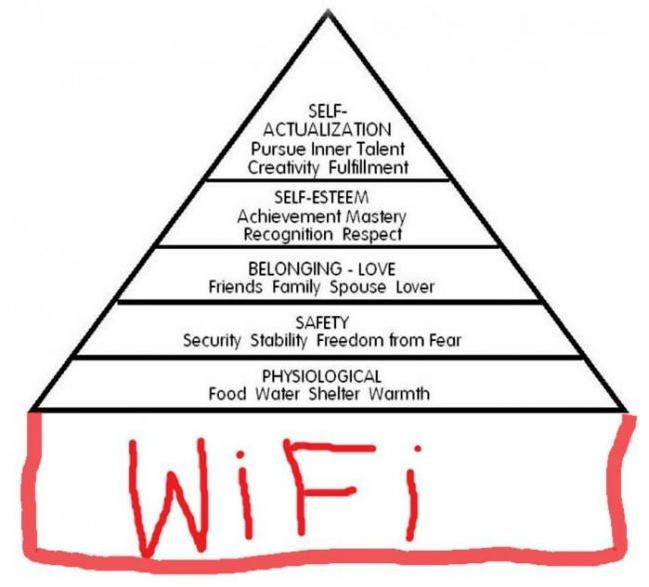What Is Happiness? Revival Of 1938 Survey Shows How Our Definition Of Happiness Has Changed

In 1938, the Bolton Evening News, a local paper for an industrial town in the Greater Manchester area, United Kingdom, asked its readers a simple question: What is happiness? In 2014, a psychologist from the University of Bolton replicated the small-scale survey among local residents as a way to understand how the concept of happiness may have changed in the 76 years since the original respondents penned their answers. What makes us happy today, Dr. Sandie McHugh says, is markedly different from what made us happy in 1938, though security ranks high on the list during both eras.
In a 1943 paper, Abraham Maslow, an American psychologist, famously presented his theory of motivation in the form of a hierarchy of human needs. Essentially, he theorized that self-fulfillment is only possible once our basic human needs have been met. Duncan Hull’s (comical yet still accurate) interpretation of Maslow’s theory below says everything about how 70 years can change us... and this naturally leads us to the current study.

“What does HAPPINESS mean for you and yours? Write down what you think — Never mind about style or grammar — It’s your own opinion that is wanted.”
So reads the copy from an ad in the Bolton Evening News run on April 28, 1938. A total of 226 people responded to this ad with a letter, including their answers to a happiness index which had them rank by importance 10 separate factors. These 10 aspects of potential happiness were: equality, politics, beauty, religion, leadership, humor, leisure, knowledge, security, and action.
In February 2014, as part of a psychology educational package, the Bolton News offered its readers a re-run of this competition in the form of a web survey. McHugh and her university colleague, Dr. Jerome Carson, retained as much of the original meaning as possible while adapting the original questionnaire to explain old-fashioned meaning. So, who answered and what did they say?
In 1938, the respondents, more than half (58 percent) of which were female, reported 22.5 percent found employment in local textile industries, 28 percent listed themselves as either retired or not gainfully employed (and this would include housewives — please direct any justifiably angry emails to the Bolton News) while six percent self-identified as clerks and draughtsmen.
In 1938, this ad hoc assemblage of Boltonians considered security, knowledge, and religion the three most important attributes for happiness. By comparison, the Boltonians of 2014 placed religion in last place on their top 10 list, while good humor, leisure, and security filled the top three spots. (It must be noted that the compilation of 2014 results has not yet been finalized.)
A similar percentage in both eras (40 percent) said luck played a part in happiness. Strikingly, the majority of respondents in 1938 said they were happiest when they were in Bolton, while 63 percent of their contemporary counterparts said away from home is best. Additionally, about one-quarter of former Boltonians said weekends are their favorite time compared to 41 percent of current residents. The majority during both time periods do not find a greater share of happiness on either weekends or weekdays.
Perhaps most surprisingly, three-quarters (77 percent) of contemporary respondents said happiness was not directly related to wealth.
Finally, people from both the past and the present rank both politics and leadership low on the scale of importance. Considering that in 1938, Hitler had driven into Vienna while Franco gained the upper hand in Spain, we can only wonder what seeds germinate today, while most of us tend our own gardens, all too happy to ignore the momentous world events that easily may blossom into future horror?
Source: McHugh S, Carson J. What is Happiness? A snapshot of the views of Bolton residents in 1938 and 2014. Annual Conference of the British Psychological Society in Liverpool. 2015.
Published by Medicaldaily.com



























